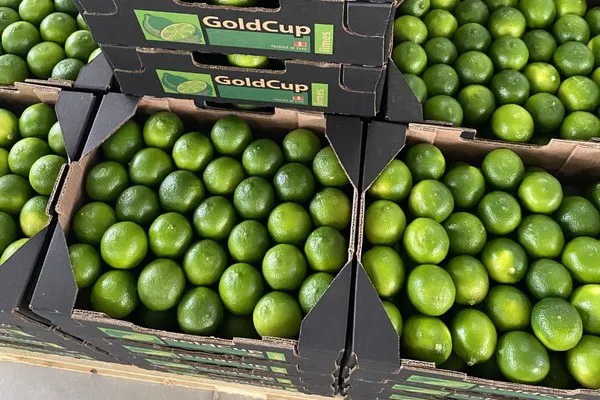The main producer supplying the European market at this time of the year is Brazil, with smaller supplies from Peru, Colombia and Vietnam. For the USA, as always, the dominant player is Mexico with complimentary volumes from Central America primarily Guatemala and Honduras.
"Colombia is ramping up volumes to around 100 loads per week which is a large volume for Europe but for the USA that is around 15% of the import. Peru is contributing around 25 loads per week to the USA as well," said Rob Cullum from Pacific Produce.
"The US market has been good for the past few months as this is the Mexican low season and will hit a high period for around 3-4 weeks until mid-April – the timing is hard to judge but the drop back to normality will happen when Mexico returns to full volume. Due to a good US market Peru and Colombia have not really entered Europe in a meaningful way so far this year."

Asian volumes to Europe
Vietnam has been the main player for several years, but it went through an abnormal bout of low quality in 2023 and now has to contend with longer shipping times because of the Red Sea issues which is challenging.
"The demand for limes is fairly constant but when the sun shines it can really pick up! So, what we tend to see is a fairly steady market in the winter months which can easily be unbalanced negatively with as little as 10% oversupply. So far this year we have seen this happen a few times with some peak weeks from Brazil and quite a lot of confused information from the supply base – often stating that there would be a short supply the following week which then materialised into a large export week – this can be caused by the fragmentation of the supply base and also by the regional variances which can give sometimes conflicting data," explains Rob.
"What we have seen is very difficult growing conditions this year, higher than normal temperatures and often periods of prolonged rain, this has translated into higher incidences of defects particularly skin issues that appear late and often with the consumer. Brown lesions on the skin which come out of an apparent clean piece of fruit often after temperature changes.
This kind of situation happened in the year following El Nino in the past so perhaps that is the correlation."
Sizing
Limes are small fruits and they grow in a relatively tight range, the average size is dictated by the cycle of the trees with small fruit at the start of the cycle and large at the end – but with 12 months production from multiple regions any sizing issues tend to be rectified quite fast.
"We expect demand to increase as normal from spring onwards the level will be determined by the European appetite to party…. Many would say that the cost-of-living crisis across all Europe will slow down consumption, we hope that any negative effect will be countered by the increased culinary or health use of limes.
"Vessel delays in combination with phytosanitary rejections in Europe, mainly for citrus canker, add to the volatility of this item. This Easter weekend is a good example, prices will jump to very high levels due to a vessel being late, but following this spike we will see a larger volume hit the market that is all a week older. At these times we work hard to keep our customers supplied – if our clients don't feel the extreme volatility of this item then we have done our job!"
For more information:
Robert Cullum
Pacific Produce
Tel: +44 (0) 1865877801
Email: [email protected]
www.pacificproduce.co.uk
